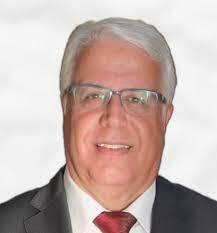The Palestinian people agree that what befell them in terms of occupation and displacement in May 1948 was a major calamity that laid the foundation for the great injustice that followed. The Palestinian people abbreviated what happened to them and their land in this history with the term "Nakba". Some of the published literature on the term states that an Egyptian poet named Ahmed Muharram published his poem "The Catastrophe of Palestine" in the newspaper "Al-Balagh" in 1933, describing the horror of what is happening in Palestine with a beginning that says: "In the fever of truth and around the sanctuary - a nation is being hurt and a people is being co-opted." And he goes on with his poem to say: "Oh Palestine, make it a calamity - a turbulent era has raged for the people." As for the sheikh of Arab historians, Constantine Zureik, he published his book “The Meaning of the Nakba” in 1948, in which he commented on the Arab countries’ acceptance of the first armistice after the victory of the Zionist “gangs” and the establishment of the State of Israel on the land of Palestine, saying that the defeat of the Arabs was not just a failure in a battle, but Nakba in its full dimensions. Zureik believed that the "Nakba" was not for the Palestinians alone, but for all the Arab peoples who were unable to protect an Arab land. In the same context, the Palestinian historian Aref Al-Aref published in the year 1956 the result of his documentary work on the Palestinian tragedy in five volumes entitled “The Palestinian Nakba and Lost Paradise”, in which he described what happened to Palestine and its people with the term “Nakba” indicating that it began from the first day of the issuance of the partition decision with British complicity. And a Westerner on the one hand, and silence from the system of international legitimacy, praising the valor of the Arab soldier in the confrontation in return for the betrayal of his leaders.
Since the advent of the "Nakba" and over the past seventy-five years, "international legitimacy" has adopted dozens of resolutions in favor of the cause of the Palestinian people. However, these decisions remained a dead letter. In the same context, the United Nations General Assembly adopted, in November of last year, five pivotal resolutions, four of which relate to the Palestinian situation, and the fifth on the occupied Syrian Golan. The General Assembly included in its resolutions on Palestine a "paragraph" referring to its adoption of the commemoration of the 75th anniversary of the Palestinian Nakba. In this item, she called on the “Palestinian Rights Division in the General Secretariat” to prepare and work to commemorate the seventy-fifth anniversary of the Nakba by organizing a high-level event in the “General Assembly Hall in New York on the anniversary of the Nakba corresponding to May 15 of this year. This call, although late, carries symbolism Great, especially since the Palestinian President will address the whole world from the international platform on behalf of more than 12 million Palestinians, to remind them of the story of a people who have been subjected to injustice, and still are, before the eyes of those who rant about justice and freedom.
The Palestinian President lived through the "Nakba" and his comrades, most of whom passed away, participated in defending the national identity against the plots to liquidate it. Today, as the President and we (the Palestinian people) remember 75 years since our catastrophe, we are at the same time living a depressing scene with details summed up by the Israeli occupation machine of injustice singling out all the components of the Palestinian people in full view of everyone, accompanied by the widening of our differences and our exposure to conspiracies to liquidate our national identity. As for our hope, it remains with the people holding onto the embers. Whoever listens to a martyr's mother as she bids farewell to the pleasure of her liver with unparalleled ferocity, or a captive mother as she sends her daughter a message of "pride" over the air, realizes the value of this people.
I conclude with a whisper to the President: “Now, in the midst of the depressing scene, you are the only one left who can rectify what is happening and spread hope again.”








Share your opinion
In Jerusalem, the memory of the Nakba, and a whisper that may reach the president